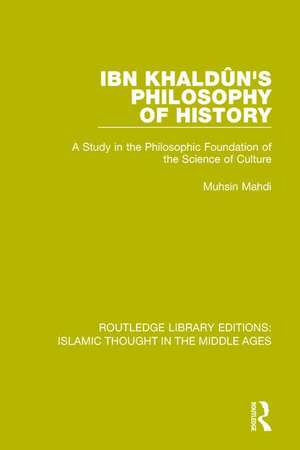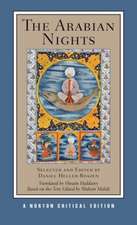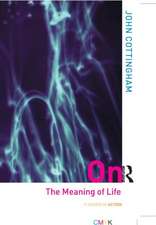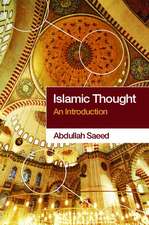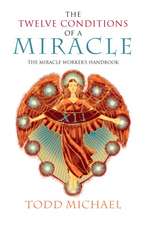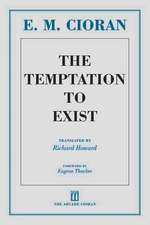Ibn Khaldûn's Philosophy of History: A Study in the Philosophic Foundation of the Science of Culture
Autor Muhsin Mahdien Limba Engleză Paperback – 13 iun 2017
| Toate formatele și edițiile | Preț | Express |
|---|---|---|
| Paperback (1) | 376.40 lei 43-57 zile | |
| Taylor & Francis – 13 iun 2017 | 376.40 lei 43-57 zile | |
| Hardback (1) | 1060.25 lei 43-57 zile | |
| Taylor & Francis – 13 oct 2015 | 1060.25 lei 43-57 zile |
Preț: 376.40 lei
Nou
Puncte Express: 565
Preț estimativ în valută:
72.02€ • 75.40$ • 59.60£
72.02€ • 75.40$ • 59.60£
Carte tipărită la comandă
Livrare economică 07-21 aprilie
Preluare comenzi: 021 569.72.76
Specificații
ISBN-13: 9781138947245
ISBN-10: 1138947245
Pagini: 328
Dimensiuni: 156 x 234 x 18 mm
Greutate: 0.61 kg
Ediția:1
Editura: Taylor & Francis
Colecția Routledge
Locul publicării:Oxford, United Kingdom
ISBN-10: 1138947245
Pagini: 328
Dimensiuni: 156 x 234 x 18 mm
Greutate: 0.61 kg
Ediția:1
Editura: Taylor & Francis
Colecția Routledge
Locul publicării:Oxford, United Kingdom
Public țintă
Postgraduate and UndergraduateCuprins
1. Historical Background and Fragments of a Biography 2. Philosophy and the Law 3. From History to the Science of Culture 4. The Science of Culture: Its Subject Matter and Problems 5. The Science of Culture: Its Principles and Method
Descriere
This book, first published in 1957, is the study of 14th-century Arab historian Ibn Khaldun, who founded a special science to consider history and culture, based on the philosophy of Plato and Aristotle and their Muslim followers. In no other field has the revolt of modern Western thought against traditional philosophy been so far-reaching in its consequences as in the field of history. Ibn Khaldun realized that history is more immediately related to action than political philosophy because it studies the actual state of man and society. He found that the ancients had not made history the object of an independent science, and thought it was important to fill this gap. A factual acquaintance with the conclusions of Ibn Khaldun’s reflections on history is not the same as the full comprehension of their theoretical significance. When these fundamental questions are answered, it becomes possible to pose the specific question of the relation of Ibn Khaldun’s philosophy of history, or his new science of culture, to other practical sciences and, particularly, to the art of history. After an exposition of the major trends of Islamic historiography, part of this book attempts to answer this question through the analysis of the method and intention of the sections of the ‘History’ where Ibn Khaldun himself examines the works of major Muslim historians, shows the necessity of the new science of culture, and distinguishes it from other practical sciences.
